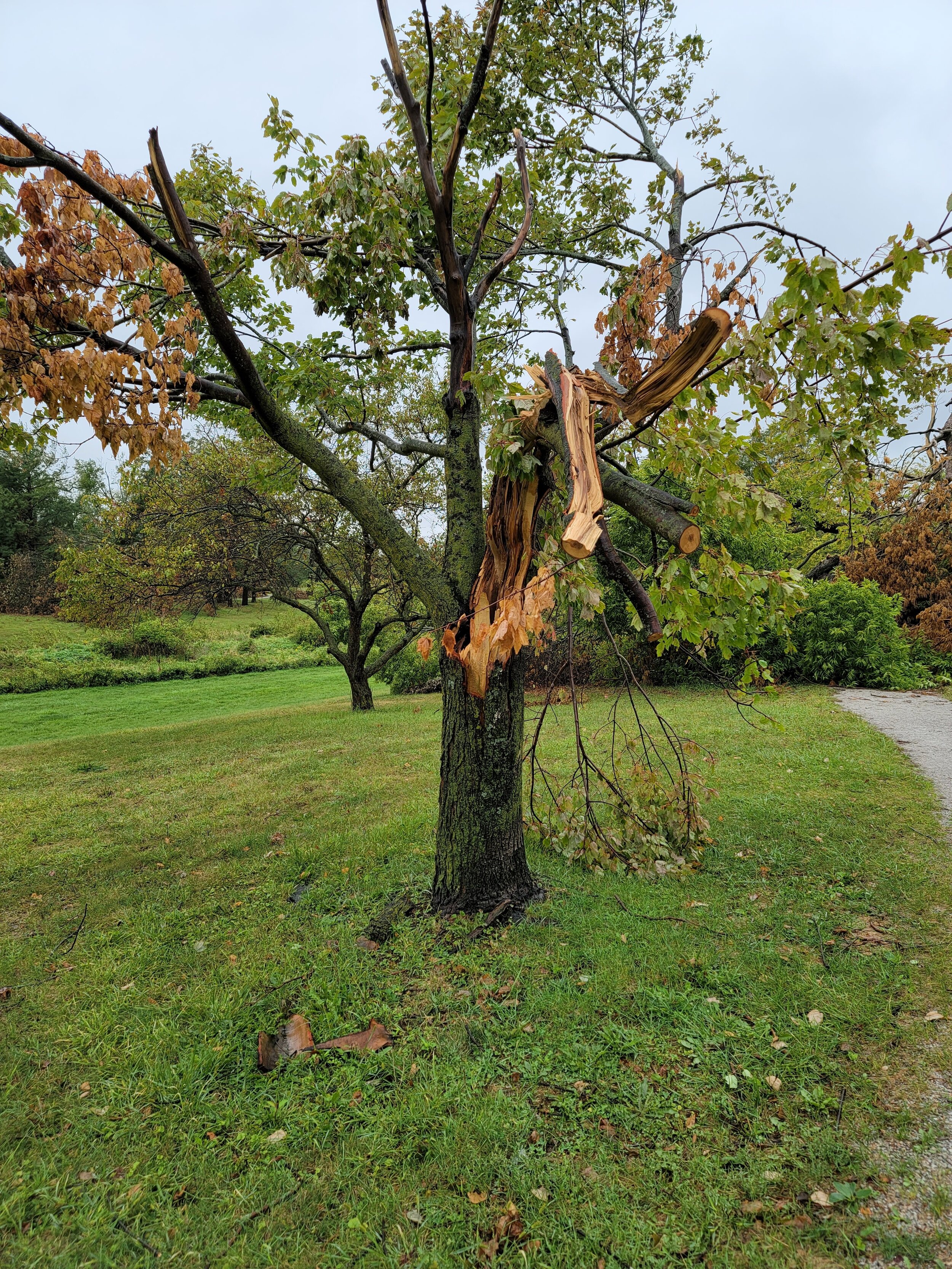Exchanging the News for What Matters
August 10th, 2020 was blazing hot, eerily still, and bright white with sunshine. Iowa baked away under the late summer sun. Corn for feed and silage was drying out just in time for harvest. People simmered in the heat on front porches, in backyard swimming pools, and at the milkshake shack. Then the sirens sounded.
Tornado sirens so unexpected, most people thought they were a drill. The blares and wails usually accompany sick green clouds and trees whipping in the wind. A quick scan of the sky and the alarms were mostly ignored while everyone resumed their activities.
Within twenty-five minutes, Cedar Rapids in Linn County became one of fifty-seven counties in Iowa devastated by a derecho. According to The National Weather Service, “a derecho is a widespread, long-lived windstorm associated with a band of rapidly traveling thunderstorms.” Assessments are still being conducted on Iowan towns, homes, corn fields, animal barns, and cars. But from first look the damage is awe striking.
Human beings and our structures are nothing in the face of a large storm. We will watch throughout human history the butting up of our world with the natural one. Yet people continue to flourish, invent, build, and grow. These setbacks solidify us and there is one thing about the 2020 Derecho that really changed Iowa. And while I am still reeling from the impact of the derecho on my home, community, and state, I am confident we will rebuild. Something else was lost though that may not be rebuilt, and that is trust in our larger community we once were part of, the media.
Just shy of over a month since and friends and family call, “Was that storm out that way near you? Are you guys okay?” Even more people still do not know what happened in the Midwest this summer.
The news failed Iowa. Mainstream social media did not trend #iowaderecho. Flags were not raised for Iowa. And our people felt cut deeply by that.
If you watch the news, reporters have enough emotions to make you run for the back door. Their stories are overburdened with exaggerated details. The plots cut right to the chase, without any context. We had everything: trees ripped from the ground, hundreds of people stuck on highways, homes looted, and moms and babies sleeping in cars to get some air conditioning. So why was our derecho not a juicy enough story?
The day of August tenth and many more after that, upset over election drama was more important. What he said and she said during the RNC and DNC ranked higher in views. Painful protests were heralded. But a state full of people without power for 11 days was hushed.
Local reporter Lyz Lenz, featured in The Washington Post made this comment, “Iowa’s last disaster, breathlessly covered by the media, was the caucuses. After that, everyone moved out. The dearth of coverage means we are struggling here, and no one knows.”
Why do we trust a storyteller, yet cast so much skepticism and disgust on the news companies and its reporters?
A storyteller creates connection. Our news sources severed the connection with the people behind the stories long ago; which is why the major critiques are false reporting and inauthenticity. We don’t trust someone who is screaming statements at us. We trust someone who sees our pain, vulnerability, confusion, loss, excitement, and hope.
Iowans do not need or expect national news coverage. Most Midwesterners prefer the quiet, community life anyways. We take care of our own, well. Yet after the derecho our state needed someone who looked over at their neighbor and said, “It must hurt to cut down 65% of your city’s tree canopy because we know how you love your shady lanes. You must be worried losing your corn crops, because you pride yourself in feeding America. We know your schools are heavily delayed in reopening and your parents are more worried about their kid’s education then their houses. Are you going to be okay?”
Iowan storytellers are a bit run over right now. We are patching up roofs, bucking up massive trees, reaching our elderly who cannot leave their homes, and trying faithfully to remember how strong our community can be. The lines are blurred and the places we meet not reopened yet. So in lieu of the news anchors, will you be our story tellers while we are down? Can you share the pictures and updates of the derecho? Will you help us remember we are strong when we feel weak rebuilding and repairing?
Mainstream media hurts communities, when they are already down, by leaving them in the tragedy. Cities are renamed for the pain they experienced rather than the good they bring to our country. The bad guys and the storms are remembered before the builders, helpers, and heroes. In the wake of this storm, I am exchanging the news for the story of Cedar Rapids’s resilience.
If your state is also experiencing a serious natural disaster right now, please comment below. We need to know what the news and social media are not trending. If you send me pictures, of the areas around your home, I will add them to this post. Pieces of my heart reside in Colorado and Louisiana and I want their stories to be told too.







